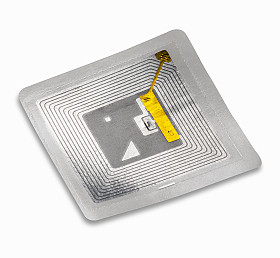 The United States Food and Drug Administration has cleared the first ever radio frequency-based blood tracking device for use at blood centers. The device, the iTrace for Blood Centers, uses radio frequency identification (RFID) technology to transmit information stored on small memory-storage chips attached to blood products. The RFID system interfaces with computer software to receive and store data on blood collection, processing, and labeling, in addition to data on expiration date and blood type. The iTrace is expected to enhance blood safety by working in conjunction with existing barcode identification and labeling systems to reduce the risk of issuing inappropriate units. The device is manufactured by SysLogic Inc., and was cleared through the 510(k) premarket approval process.
The United States Food and Drug Administration has cleared the first ever radio frequency-based blood tracking device for use at blood centers. The device, the iTrace for Blood Centers, uses radio frequency identification (RFID) technology to transmit information stored on small memory-storage chips attached to blood products. The RFID system interfaces with computer software to receive and store data on blood collection, processing, and labeling, in addition to data on expiration date and blood type. The iTrace is expected to enhance blood safety by working in conjunction with existing barcode identification and labeling systems to reduce the risk of issuing inappropriate units. The device is manufactured by SysLogic Inc., and was cleared through the 510(k) premarket approval process.
Reference
1. United States Food and Drug Administration. FDA clears first blood tracking device that uses Radio Frequency Identification technology. FDA News Release. May 28, 2013. Accessed June 20, 2013. http://www.fda.gov/NewsEvents/Newsroom/PressAnnouncements/ucm354186.htm.
